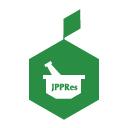Article,
Therapeutic evaluation of prolonged infusions of β-lactam antibiotics in the treatment and management of critically ill patients
Journal of Pharmacy & Pharmacognosy Research, 5 (2): 88-95 (March 2017)
Abstract
Context: Critically ill patients has a large number of pathophysiological changes product of commitment and organ systems. Therefore, knowledge of the pharmacological properties of antimicrobials is essential to choose the best treatment. In order to optimize the response of antibiotic therapy and these drugs, new strategies have been proposed dosage, the most used drug application of the model, called: Pharmacokinetics/Pharmacodynamics (PK/PD). In the case of β-lactam antibiotics, the PK/PD model is known as time-dependent on the Minimum Inhibitory Concentration (Time > MIC). For optimal concentrations in β-lactam antibiotics, prolonged or continuous infusions, thus exposing the drug on the pathogen is achieved in a longer optimal concentrations through are used.
Aims: To evaluate the therapeutic response of β-lactam antibiotics in critically ill patients with prolonged infusions by applying the model PK/ PD.
Methods: Prospective observational study (concurrent cohort), taking as a control non-concurrent historic cohort, conducted for a period of seven months in the intensive care unit of the Hospital Clínico San Borja Arriarán (HCSBA), Santiago, Chile.
Results: It was found a significant difference in number of days of hospitalization in ICU for the group bolus versus infusion group (12.5 ± 5.4 vs. 18 ± 9.7 days, IC: 1.5-9.5; p = 0.009).
Conclusions: This study suggests that there would be a therapeutic advantage in the use of prolonged infusion in ICU stay duration.
